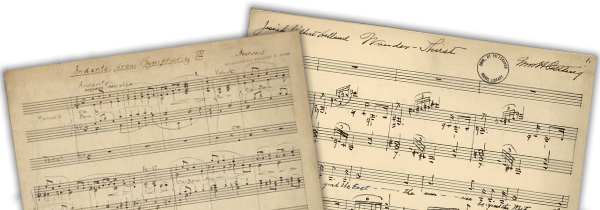
Charles Henry Pace was a Black gospel composer and publisher.
Charles Henry Pace (1886–1963) was an influential composer and publisher of Black gospel music, first in Chicago, Illinois, and then in Pittsburgh, Pennsylvania. Charles was born in Atlanta, Georgia, and his family moved north when he was young, eventually settling in Chicago in 1899. He studied trumpet and piano as a child, and his professional career began in 1910 when he played in a band in Benton Harbor, Michigan, and started a publishing company, Pace Music House, in Chicago. Around 1915 he began working as an arranger for Chicago-based Lillian M. Bowles, an early publisher of African American sacred music. He became choir director at Beth Eden Baptist Church in the Morgan Park neighborhood of Chicago in the mid-1920s.
Drawing from the membership of the church choir, he assembled the Pace Jubilee Singers, which ranged from seven to ten musicians and was briefly accompanied by Thomas Dorsey. The group performed on WGN, WLS, and WBCN and recorded over ninety sides for Victor, Brunswick, and other labels. As some of the first recordings made of this repertory, they influenced many later artists. Around 1934 he stopped working for Bowles and began working at Liberty Baptist Church. Also around this time he married Frankie (born Frances Scott in 1905 in Clinton, Louisiana), and together they established the Old Ship of Zion publishing company.
In 1936 Reverend A. W. Nix invited Charles to serve as music director at Tabernacle Baptist Church in the North Side neighborhood of Pittsburgh. After arriving in Pittsburgh, the Paces quickly started the Pace Choral Union, a gospel choir of twenty-five singers that was enlarged to as many as 300 singers for special performances. The Paces moved Old Ship of Zion to Pittsburgh, establishing a store and office on Centre Avenue in the Hill District. The store was an important community meeting place and hub for visiting musicians, including Louis Armstrong and W. C. Handy. Since gospel was not supported by major publishing companies, the Paces published their own music and distributed it through a nationwide network of Black-owned music stores, helping establish the infrastructure that facilitated the growth of the gospel industry.
In 1952 the publishing company was rebranded as Charles H. Pace Music Publishers. Charles grew ill in 1959, and Frankie assumed full business responsibilities. When Charles died in 1963, she changed the name of the store to Pace’s Music Store. The store and the Paces’ musical careers were integral components of their community work and activism. Frankie was especially politically active, taking a leadership role in many organizations. She was president of the Hill District Homeowners and Tenants Association, president of Citizens for Hill District Renewal, and a board member on the Mayor’s Committee on Human Resources, Urban League for Pittsburgh, Opportunities Industrialization Center, Allegheny Housing Rehabilitation Corporation, and NAACP of Pittsburgh.